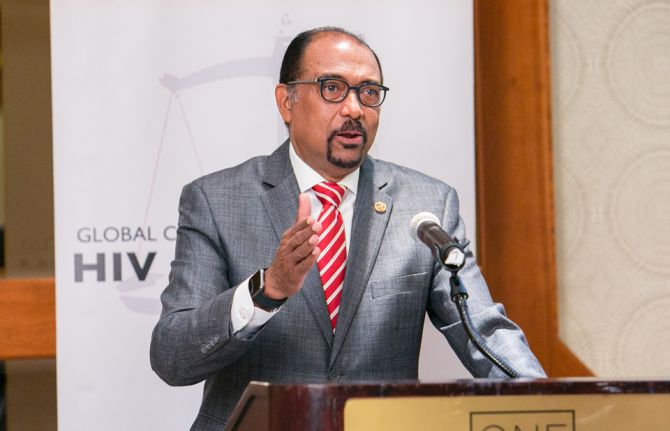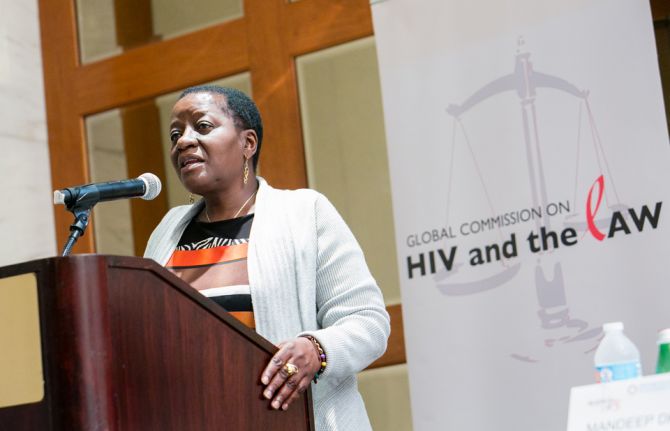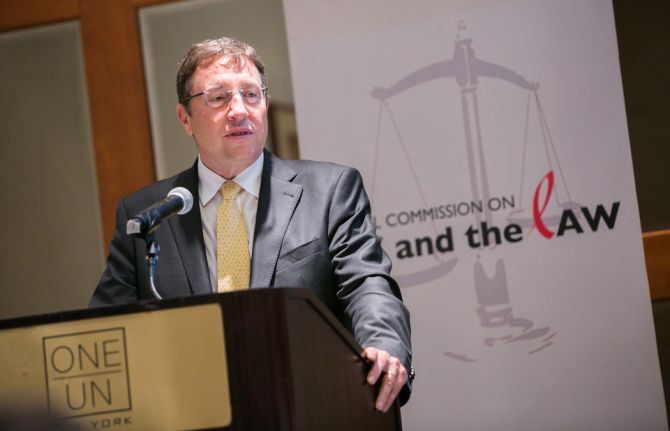



Update
Review of Global Commission on HIV and the Law identifies progress and challenges
14 July 2017
14 July 2017 14 July 2017Five years ago, a landmark report published by the Global Commission on HIV and the Law urged governments to promote laws and policies grounded in evidence and human rights in order to turn the tide against AIDS. On 12 and 13 July, members of the commission and other experts came together to assess the progress made in advancing the report’s recommendations, look at the barriers that remain and discuss opportunities for further progress.
The participants recognized the role of the commission as a catalyst for social justice and human rights in the HIV response. Since the release of the commission’s report in 2012, efforts to advance the report’s recommendations have been documented in 88 countries. Several countries have conducted comprehensive assessments of laws, policies and practices affecting people living with HIV and have changed legislation as a result. National conversations on the rights of people living with and vulnerable to HIV have led countries to reform discriminatory practices against people living with HIV. Judges, civil society organizations and partners have been instrumental in helping to overturn discriminatory legislation and counter HIV stigma.
Despite this progress, persistent and new forms of human rights challenges face the HIV epidemic and response. Shrinking space for civil society, reduced funding for human rights, discrimination in health-care settings and an increasingly challenging political and social space are among the challenges that call for continued action. In the light of this, the participants called for an update report of the Global Commission on HIV and the Law to reinvigorate progress in advancing human rights and ensuring that no one is left behind.
Quotes
“Laws that criminalize HIV are anti-science, unjust and unconstructive.”
“We’ve seen that some countries, including Ghana and Mozambique, have been able to improve HIV responses by adopting more progressive policies. If we’re going to defeat HIV, other countries need to do the same.”
“Equality, inclusion and non-discrimination are at the heart of the 2030 Agenda for Sustainable Development. Laws and policies that protect rather than punish, combined with programmes that reduce stigma and discrimination, exist and need to be scaled up if we are to achieve our goal of ending the AIDS epidemic by 2030.”
“It’s incredible to see the progress that some countries have made over the past five years. They’ve taken important strides to protect the rights of women and people living with and vulnerable to HIV. But now is also the time to think of the way forward in addressing the persistent and new challenges that are leading to people being left behind in the response to HIV”.



